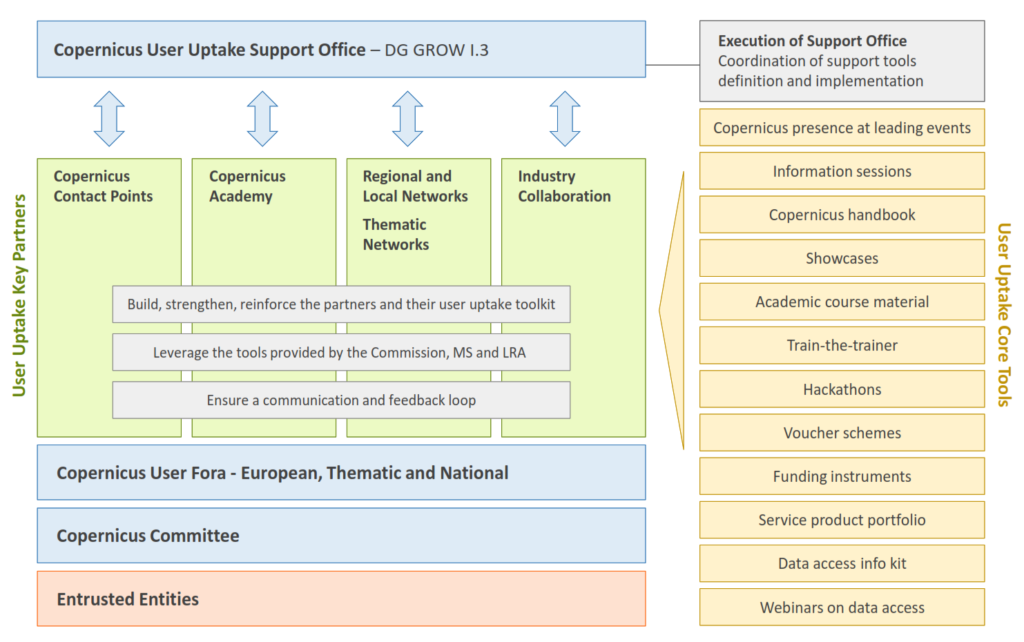The Copernicus programme is expected to generate economic and societal benefits for EU citizens. At the start-up of the programme, a coordinated approach to the various user uptake initiatives across the Copernicus Participating Countries was seen as instrumental for the uptake of Copernicus data. Tools to stimulate the uptake of Copernicus data and information, such as user information days, brochures, and business incubators, lacked continuity and sustainability, which needed to be addressed to generate the momentum Copernicus needed to reach its economic and societal benefits.
Novaspace mapped the various existing user initiatives at different levels: national and local level, industry and research projects. Using the standardised assessment framework developed by Novaspace, these initiatives were evaluated and best practices and areas for improvement were extracted to define recommendations to enable the European Commission to decide which user uptake tools would result in the envisaged economic and societal benefits.

The full study can be found here.